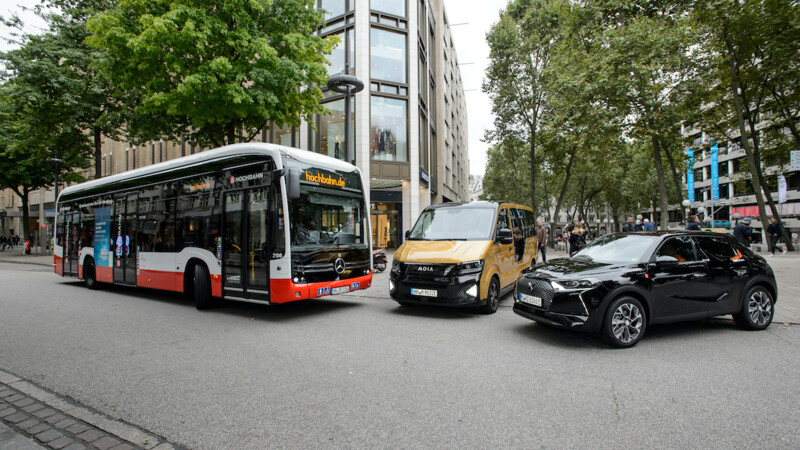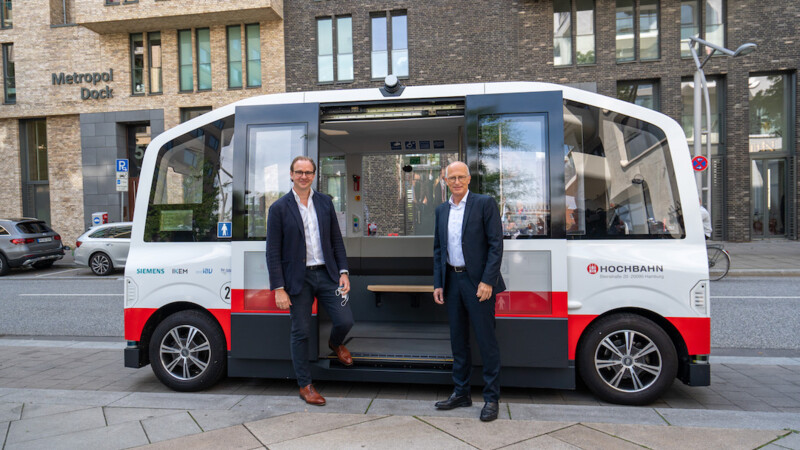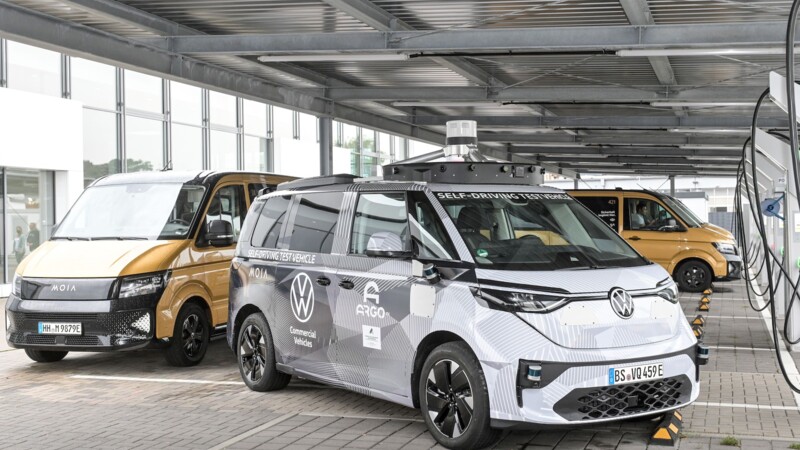The VHH, Continental, the testing company Dekra Automobil and Easy Mile, a French manufacturer of autonomous vehicles and the DLR Institute of Transportation Systems, are testing driverless shuttles jointly to encourage more people to use public transport. Anjes Tjarks, Senator for Transport and Mobility Transition, commented: "Emoin is a flagship of digitalisation and the future of on-demand transport in Bergedorf. The e-shuttle shows how the mobility transition can be successfully brought to urban outlying regions." The driverless minibus can connect around 5,000 people to the public transport network and offers a convenient connection to the S-Bahn station with more than 50 virtual stops. "On-demand transport is an alternative to owning a car and can ensure less traffic and an increased quality of stay," he added.
Three self-driving e-shuttles travelling at a maximum speed of 18 km/h took to roads in Bergedorf Tuesday (September 21, 2021) as part of the "emoin" future mobilty project. The four-metre-long minibuses should seal gaps in the first and last mile between people’s homes and the next public transport hub. Residents of Hamburg can book the shuttles on-demand per app or telephone until October 31, 2021. The "emoin" project is one of ten being carried out by the RealLab Hamburg (RealLabHH). The results will be presented at the leading ITS World Congress for intelligent transport systems and services underway in Hamburg from October 11-14, 2021.
Driving the mobility transition in outlying regions
Radar sensors identfying barriers
A DLR algorithm co-ordinates the barrier-free minibuses. Vehicles that are not needed at one of the virtual stops wait at Bergedorf ZOB to avoid empty runs and raise efficiency. The electric EasyMile shuttles are equipped with radar sensors and so-called 3D flash laser sensors that record entire traffic scenarios and capture the vehicle's environment accurately. The four-metre-long and approximately two-tonne minibuses can accommodate up to five passengers. A VHH vehicle attendant is on board to intervene should the need arise.
HafenCity - test area for autonomous vehicles
Emoin is the second self-driving vehicle to be integrated into traffic in Hamburg. An autonomous minibus first took to roads in HafenCity in 2019 as part of the Hamburg Electric Autonomous Transportat (HEAT) R&D project. The first passengers were allowed on board last October. Now in its last phase, the HEAT project, managed Hochbahn Hamburg, is taking passengers aboard the 1.8-kilometre route with five stops until the ITS Congress in mid-October.
sb/pb
Sources and further information
More
Similar articles

ITS World Congress Hamburg 2021 to be held under 2G rules

Reallabor Hamburg undertakes pilot study on commute

